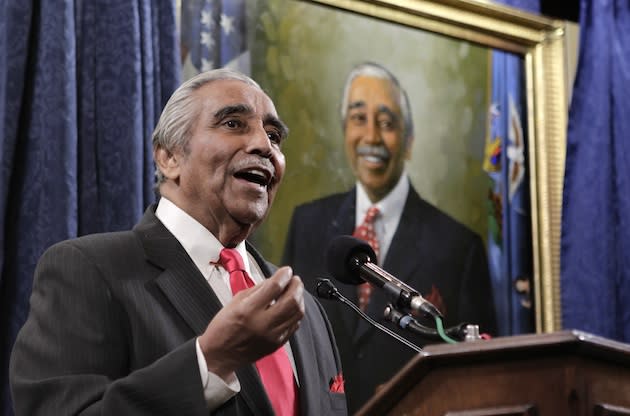 The Ticket
The TicketIncumbents Rangel, Hatch win primary elections

Two very different congressmen—New York Democratic Rep. Charlie Rangel and Utah Republican Sen. Orrin Hatch—avoided the fate of other incumbents around the country and effectively won re-election Tuesday night despite strong primary challenges in their respective states.
While Hatch had for some time appeared a shoo-in for re-election, Rangel's fate was far less certain. But Rangel emerged victorious from an arduous House primary, beating back a challenge from state Sen. Adriano Espaillat in the newly redistricted Hispanic-majority 13th District.
Rangel led Espaillat 50 to 33 percent with 70 percent of precincts reporting. Three additional Democrats, including former Bill Clinton aide Clyde Williams, split the remainder of the vote in the 13th.
Many had cast Tuesday's Democratic primary as the most difficult of Rangel's storied 41-year House career after redistricting left the 82-year-old, who is black, running in a new district that was not black-majority. Espaillat, who is Dominican-American, shored up Latino support as well as local Democratic and union backing in a race in which he positioned himself as a fresh face who could restore voters' faith in Congress.
But Rangel's longtime service and extensive political network continued to benefit him this cycle, earning him high-profile endorsements from the state's Gov. Andrew Cuomo, New York City Mayor Michael Bloomberg, former Mayor Ed Koch and others.
Tuesday marked Rangel's first election since the House voted to censure him in December 2010 for multiple ethics violations, including failing to report and pay taxes on rental income, improperly soliciting donations and improperly operating a campaign office.
In Utah, Hatch easily clinched his party's nomination Tuesday over former state Sen. Dan Liljenquist. Hatch led with 68 percent to 32 percent for Liljenquist with 28 percent reporting.
Hatch, a 35-year Senate veteran, had been marked for defeat last year by the tea party, which accused Hatch of becoming too much of an establishment figure and moderate for the conservative state. With tea party backing, Liljenquist prevented Hatch from winning his party's nomination outright at the state GOP convention in April.
But the senator remained more well-funded and well-known than his challenger, and he was able to effectively argue that his experience and seniority would benefit the state.
